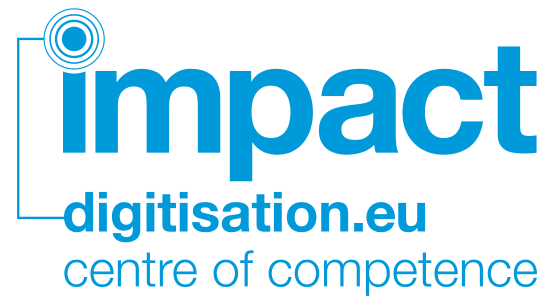Last year I was invited to visit two important National Libraries in Latin America. There I had the opportunity to meet colleagues working on digital projects in both institutions and share with them our experiences and projects involving access, use, enhancement, interpretation and dissemination of our digital collections.
In October I went to Santiago de Chile to give a talk at the National Library of Chile (BNC) as part of the commemorations of the 12th anniversary of Memoria Chilena, a Web interface created by the BNC that offers public access to a wide range of digital objects, both born-digital and digitised content, including still and moving images, sounds, maps, textual resources and other data sets, all of which relate to Chilean history and contemporary society. Chile is the only country in Latin America to have a legal deposit regulation for non-print materials which was introduced at the same time as the United Kingdom in 2013. Like the BL, the BNC manages the country’s Web Archive programme and both institutions adopt a similar policy in terms of harvesting, preservation and access to archived Web content. During my visit I shared how the BL is providing remote access to special collections provided by our Web Archive programme without infringing copyright and data protection regulations. Our Chilean colleagues were also interested in learning how we are providing visualisation tools such as N-gram, tag clouds and 3D walls to facilitate discovery, access and analysis of archived UK Web content to researchers around the world.

Aquiles Alencar-Brayner, Ana Tirnoni Barrios (Director of BNC) and Roberto Aguirre (Head of Digital Collections at BNC)
In my public talk at the BNC I offered an overview of the various projects on which our Digital Scholarship team is working at the moment including BL Labs, Endangered Archives and Digital Scholarship Training programmes, and I showed how we are engaging with new audiences through crowdsourcing activities such as our georeferencing platform, convert-a-card project, Off-the-Map competition, edit-a-thon gatherings and many other exciting activities supported by our team that allow the wider pubic to creatively engage with our rich and diverse digital collections. My presentation, in Spanish, is available for access and download at http://bit.ly/1LQEBnE .
In December I went back to South America, this time to a very warm Rio de Janeiro, where I met colleagues from the National Library of Brazil (BNB) to discuss ideas and projects involving digital scholarship. The BNDigital, the digital platform of the BNB, offers access to more than 1.5M digitised documents from the Library’s collections including periodicals, books, photographs, manuscripts and maps all of which makes the platform the most important and one of the most used resources for accessing digital content in the country. The Brazilian National Library is currently working in partnership with the National Library of Portugal on the Luso-Brazilian Digital Library, a single platform that offers access to digital objects from both institutions bringing together millions of relevant documents allowing users to have a more comprehensive view of the relations between both countries in colonial and post-independence period.
The massive volume and diversity of digital content available in the libraries I visited offer a great opportunity to promote Digital Research in both countries. But access to digital content in today’s environment cannot be understood without a big data approach to our electronic collections. For that, libraries, museums and archives need to adopt digital tools for comparison, visualisation, text mining, metadata enhancement and crowdsourcing activities – to mention a few examples – that would support researchers and the general public in the manipulation, interpretation and better understanding of the ever increasing data provided by our institutions. This was the main message I gave in Chile and Brazil – a message that was received with great enthusiasm by colleagues always eager to expand their digital collections beyond the simplistic and misconceived idea of electronic content as a mere surrogate of physical objects.
Re-posted from http://britishlibrary.typepad.co.uk/digital-scholarship/2016/01/digital-south-america-.html#sthash.wvDVgVIP.dpuf
See the slides! (in Spanish)
[slideshare id=53988480&doc=charlachilebn2015-151015183330-lva1-app6891]
